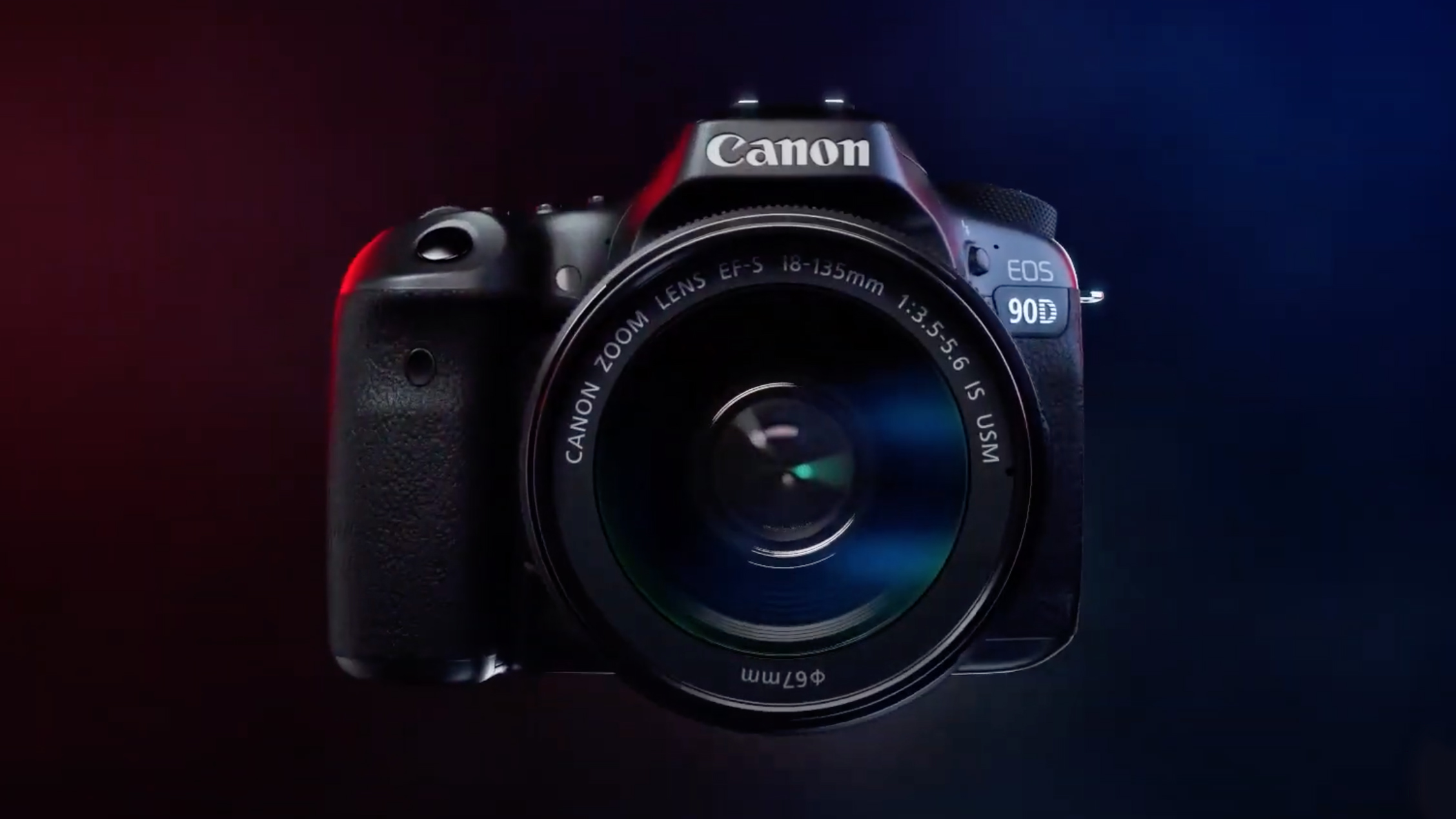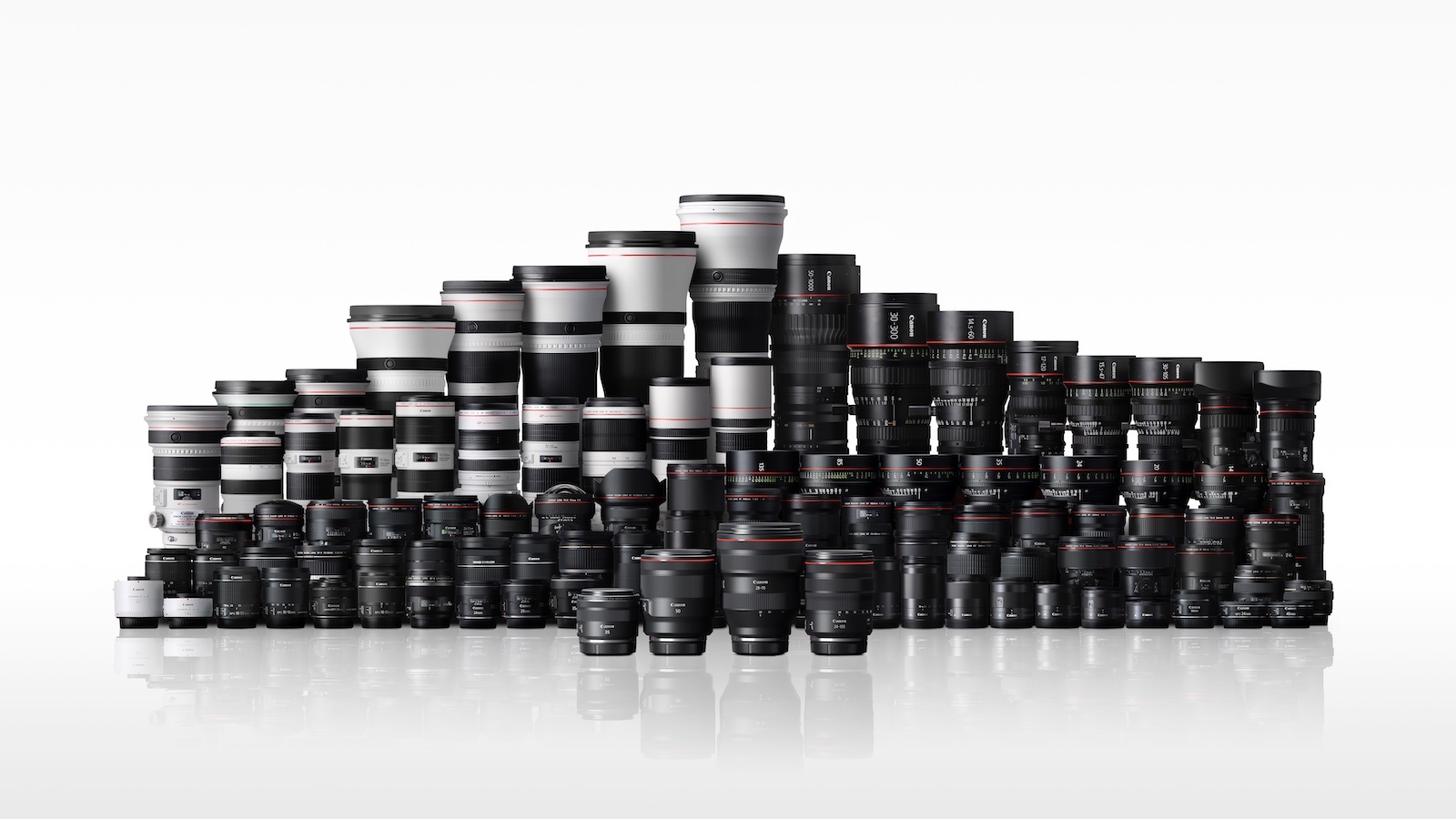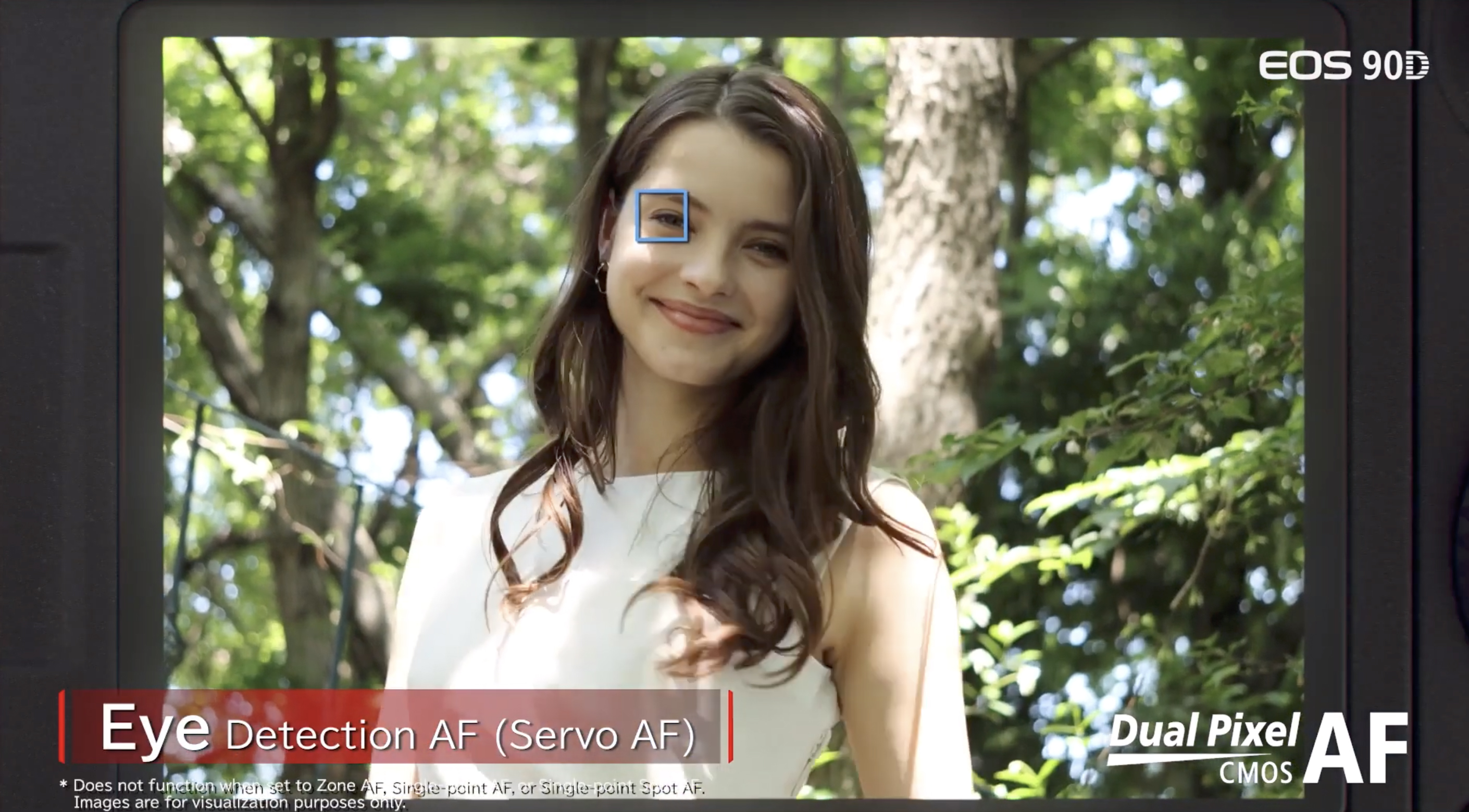How relevant is the Canon EOS 90D when mirrorless cameras are better than ever?
Don't rule out DSLRs just yet

Whether it was down to a simple slip of the finger or tactical leaking, Canon Australia was kind enough to furnish the internet with details of a Canon EOS 90D DSLR.
The leak appears to put an end to the idea that Canon will abandon its established EOS DSLR line and switch its focus entirely to its mirrorless EOS M and EOS R ranges, and from what we can see the 90D is quite the upgrade over the existing EOS 80D. The leaked video points to a fresh 32.5MP sensor, new DIGIC 8 processing engine, faster burst shooting, revamped metering and autofocus tracking courtesy of a new metering sensor, and 4K video on top of all that.
- What's the difference between mirrorless cameras and DSLRs?
- Canon vs Nikon: which camera should you buy?
- Best beginner DSLR: 10 cheap DSLRs perfect for new users
For the enthusiast, it certainly seems well specified, but with the mirrorless market continuing to broaden its offerings, and far less activity on the DSLR front than there used to be, does such a model still make sense?
Mirrorless hasn't won every battle – at least not yet
For those untied to any particular system, mirrorless cameras certainly appear to make more sense than DSLRs. There are far more models to choose from for a start, from many different manufacturers, which makes it easier to find a camera you like the look of, both inside and out, at a price you're wiling to pay.
There are also the size and weight benefits – at least of the bodies, though far less so of the lenses – together with the likelihood of new technologies coming to these cameras first. We've also been impressed by many of the lenses developed for some of the current systems to date, even if some are monstrously big and heavy, and crazy-expensive.
Mirrorless cameras can shoot in complete silence, and can achieve faster burst rates than DSLRs, and some of the latest models have highly impressive phase- and contrast-detect hybrid AF systems that cover far more of the frame than the phase-detect AF systems found on DSLRs as standard.
So why buy a DSLR when you can grab yourself a very handsome Fujifilm X-T30, or compact full-frame Nikon Z6, or enjoy the high-res charms of the Sony A7R IV instead?
Get daily insight, inspiration and deals in your inbox
Sign up for breaking news, reviews, opinion, top tech deals, and more.
Well, you may already own a DSLR and a collection of lenses that would be costly to replicate if you switched to a mirrorless system. (The same applies to accessories; in Canon's case, the company and third parties have had over 30 years to develop these for its SLR and DSLR lines). Acquiring a similar range of lenses may not even be possible, given that many mirrorless camera lines are still in their infancy – and many camera and lens combinations don't present a significant advantage in terms of size or weight.

Sure, you can use existing EF lenses with Canon's mirrorless models via an adapter, but it's not ideal. Many photographers are also used to the more ergonomic design of the grips on the likes of the Canon EOS 7D Mark II and Canon EOS 5D Mark IV, and you may still hate the idea of an electronic viewfinder – many people do, despite just how capable some of these now are.
And, while you can use those same lenses on Canon's EOS R and EOS RP bodies, neither camera is aimed at the same kind of audience likely to be drawn to the EOS 90D.
Many DSLRs trounce mirrorless cameras when it comes to battery life too. If the leaked specs of the EOS 90D are to be believed, the camera can fire for over 1,800 frames per charge, which is around three or four times what the average mirrorless camera can manage.
DSLRs continue to evolve
It's easy to forget that progress isn't limited to mirrorless cameras. For all their constraints, DSLRs are getting better with every generation.
The EOS 90D, for example, appears to have a 32.5MP APS-C sensor, which is not only a nice step up from what the EOS 80D offers, but betters every APS-C mirrorless camera currently available – although the Canon's EOS M6 Mark II, details of which have also been leaked, appears to use the same sensor as the EOS 90D.

Live view autofocus, once a dismal affair on DSLRs, has also been a strong point for Canon since the launch of its Dual Pixel CMOS AF technology, and the EOS 90D appears to have eye detection and tracking as a focus.
This isn't present on the EOS 80D, but it's been a much sought-after feature in recent years, and it's one that Canon recently bought to its EOS R via a firmware update. It's not clear just yet whether on the 90D this will be available during video capture, but face detection also appears to be possible when using the viewfinder, which hasn't previously been the case on a Canon DSLR.
Videographers looking to use the EOS 90D look set to not only have 4K video quality to rely on, but the wealth of native lenses that make capturing more unorthodox fisheye, macro or super-telephoto footage easier than on rival mirrorless systems, the lens lines for which are still being established. Of course, adapters have made all kinds of mirrorless camera/non-native lens combinations possible, but it's hard to argue with the convenience of having a native selection of glass that maintains autofocus, auto-exposure and so on.
While we're still waiting for official specs and pricing – it's important to remember all of this is just a rumour right now – it seems Canon believes there's a market for the EOS 90D, just as it believes there's a market for the three entry-level DSLRs it's introduced in the past 18 months. An update to the EOS-1D X Mark II ahead of the Olympic Games next year is also still plausible, just as an update to the Nikon D5 would make a lot of sense.
There's no question that mirrorless cameras have a brighter future than DSLRs, but it's too early to write off DSLRs as redundant when you consider the strength and depth of their native lens lines, and that fact that many people are still perfectly happy with what they offer.